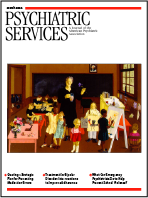In Intervening in Adolescent Problem Behavior: A Family-Centered Approach, Thomas J. Dishion and Kate Kavanagh summarize 15 years of developing and researching an ecological approach for working with adolescents with problem behaviors—the Adolescent Transitions Program. Adolescent behaviors for which this intervention is effective include delinquency, substance abuse, alcohol abuse, aggression, academic difficulties, and social skills deficits.
Specific chapters address the developmental and ecological theories used in the creation of this program. Several chapters focus on the articulation of the multiple levels of interventions in the program, such as a family resource center (universal level), a component supporting adolescents and families not yet at high risk (selected level), and a component addressing adolescents and families at high risk (indicated level).
Key messages throughout the book include the importance of placing adolescent problem behaviors in a developmental framework, of planning interventions within the context of the family, and of actively using the broader social and academic systems that affect adolescent functioning.
Evaluation data on the program and related evidence-based studies are presented. The reader is invited to understand how modifications were made on the basis of the data—even negative data are shown to be meaningful to program decisions. The authors use their findings to discuss and dispute common treatment practices and beliefs, such as dose response, the preference for close adherence to a treatment manual or curriculum, the practice of a traditional clinical treatment "session," and the recommendation of group work with adolescents.
One chapter addresses the methodologic issues encountered during data collection. Measurement issues such as parents' underreporting of adolescent problem behaviors or the tendency of teachers to rate African-American or nonwhite males as having a higher risk of problem behaviors are identified, and methods researchers can use to reduce these biases are provided.
This book will be particularly useful to beginning psychiatrists, psychologists, and social workers who are interested in an ecological approach to working with adolescents and their families. It provides a clear understanding of the purpose of various program phases, such as prevention, assessment, feedback, and intervention. Numerous examples are presented of what to say and how to interact at each level. Common issues that arise when working with adolescents, conducting parent groups, or developing a collaborative program in a school setting are also addressed in this book. Helpful checklists and guidelines are included in the appendixes.
Although the book does deal with the many issues involved in establishing a comprehensive program, it makes the program appear easier to implement than it actually is. Components of the model, issues of implementation, and preferred staffing are described too briefly at times, which may not do justice to the effort, skill, and knowledge needed to carry out this type of intervention effectively. Finally, in a text that uses an ecological perspective for working with adolescents and families, more attention must be given to issues of diversity.

